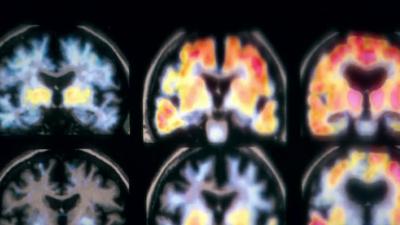(WAND) — In a new report out this week, the Alzheimer's Association said Illinois caregivers are providing about 481 million hours of unpaid work every year, which would cost $9.8 billion.
Scott Burnsmier knows firsthand how devastating Alzheimer's disease is for a family.
"My mother lost her battle back in 2018, so she had a 10 year battle," Burnsmier told WAND News.
He was one of the estimated 312,000 people in Illinois each year who care for a family member with Alzheimer's disease.
"There's a lot of ups and downs from neurology appointments to the various emotional roller coasters you go through when the diagnosis first happens," Burnsmier explained.
His mother and father-in-law both lost their battles with the disease about two months apart. It put a strain on his marriage and mental health.
"That's what this disease will do— is it strips you of your character and your integrity," Burnsmier said. "You're trying to hold onto that for your loved one, but then you're trying to hold on yourself. And sometimes as a caregiver that gets overlooked."

Legislation signed into law last year require the state employees insurance program to cover medically necessary FDA-approved treatments and medications to slow progression of the disease.
The Alzheimer's Association report finds 62% of Illinois caregivers have at least one chronic health condition, like heart disease, diabetes or cancer. 29% also report struggling with depression.
"Life is so incredibly short and you can get bitter or you can get better— and our family got better," Burnsmier said.
He is now serving on the board for the Alzheimer Association's Illinois Chapter, and runs a men's support group.
"Where you can gather with other people going through the same things. We also have education programs— caregiving can be so overwhelming with so many things to consider and so many new skills to develop," Daryl Carlson, Manager of Education and Community Volunteers, for the Alzheimer's Association explained.
The Association also operates a 24-7 hotline to help.
"Anytime you have questions, day or night, you can talk to a real person who is a masters-level clinician social worker who can help answer questions, help get you the answers you need," Carlson told WAND News.
The organization's report also found a looming shortage for direct care workers, like nurses and home health aides, for Alzheimer's patients. An estimated 1.2 million additional care workers will be needed by 2030.
Copyright 2023. WAND TV. All rights reserved.











